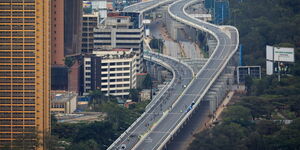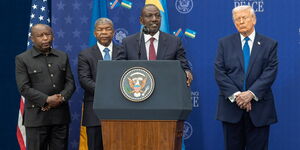The Anti-Doping Agency of Kenya (ADAK) has unveiled a string of reforms aimed at curbing the doping menace in the country, following a financial boost from the government.
The move comes just months after ADAK threatened to paralyse operations after its funding was reduced to Ksh20 million in the 2024/25 financial year.
While confirming a budget reinstatement of Ksh185 million, ADAK described the funding as not just a financial restoration, but a strong statement of national commitment to upholding integrity in sport.
"Currently, the Agency is working diligently around the clock to fully address the Corrective Actions and other mandatory requirements in a bid to maintain full compliance with the World Anti-Doping Code," ADAK confirmed in their statement.
The government's inclusion of a hefty budget for ADAK is also crucial, particularly because the agency would all but crumble without funding from the state. Notably, the agency cannot source funds from alternative sources due to a possible conflict of interest with other sponsors.
Because of the boost, the anti-doping agency made several resolves to curb doping, with one of the most significant measures being the expansion of testing exercises to focus on high-risk athletes and regions.
Besides integrating anti-doping education into school curricula through collaboration with the Kenya Institute of Curriculum Development (KICD), the agency also revealed there was an outreach programme to schools, as well as awareness campaigns in partnership with teachers, coaches and community leaders.
"Currently, the Agency is working diligently to fully address the Corrective Actions and other mandatory requirements in a bid to maintain full compliance with the World Anti-Doping Code," the agency confirmed.
In addition, ADAK revealed it was working to establish a nationwide network of Anti-Doping ambassadors to promote safe practices and create more awareness within the sport.
Following the budget boost, pressure is now on ADAK to comply with the World Athletics Rule 15 requirements and ensure the country produces a batch of clean athletes ahead of the highly anticipated World Athletics Championships slated for September 2025.
Cases of doping in the country have been rampant in recent months, with several big Kenyan names getting slapped with lengthy bans after the discovery of illicit substances in their system.
The latest incident saw marathoner Purity Changwony banned from athletics for two years after admitting to multiple violations of the Anti-Doping Rule.
The Athletics Integrity Unit confirmed Changwony's fate on Tuesday, May 20, as the body revealed the ban stemmed from a urine sample collected during the Volkswagen Prague Marathon held on May 8, 2022, in Prague, Czech Republic.
In a separate incident, promising Kenyan athlete Brian Kipsang was given a two-year ban by the Athletics Integrity Unit (AIU) after he tested positive for prohibited substances.












